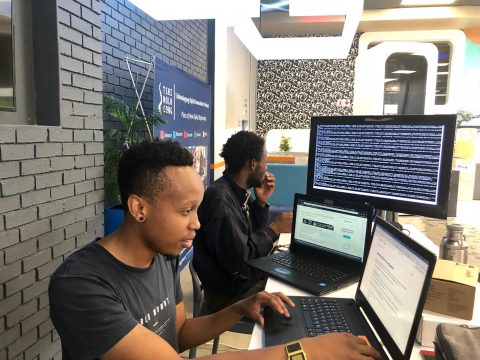Empowerment
A Call For Gender Reform
A video doing the rounds on social media at the start of the COVID-19 pandemic moved me to both a deep sense of despair and anger. The video showed how a self-employed woman of a respectable age was loaded into the back of a police van with her goods. Her street food was confiscated by a male police officer for transgressing the level 5 lockdown regulations.
It stays with me as a stark reminder of the deep social divide and lack of protection for vulnerable women in the informal sector. This cuts across other sectors for women in general who similarly endure little to no protection in a world that remains largely patriarchal, racist, sexist, anti-LGBTQI+, anti-poor and conducive to the thriving of gender-based violence.
The gender lens
Important to note is that a gender lens does not exclude men. The focus remains on empowering women and girls, however, the conversation is extended to include men as enablers to change and to challenge socially constructed roles.
Society constantly peddles these constructs of male toxicity, unconscious bias and the power dynamic and vertical employment relations between women and men, which are reinforced through channels of education, politics, economics and cultural systems. Reform demands that we advocate for a complete overhaul of the financial, social and political system to make a real dent in the scourge of femicide and, ultimately, put cash in the hands of women.
A gender lens approach to South Africa’s policy framework will ensure that decisions around how women overcome structural barriers will bolster the success of a greater number of women participating in the economy. Women face specific challenges around entry to male-dominated industries. Entry to these areas will unlock an expanded range of products and novel services previously unimagined.
Time to do the right thing and make a seismic shift
The time has come to do the right and logical thing and link a strategy that supports both profit and purpose. Achieving both the bottom line and equality is not mutually exclusive, and embracing this concept should be the start of a new beginning. Reshaping the system to incorporate the women’s agenda is a seismic shift from the rampant and common devaluation and disenfranchisement of women to one that promotes and includes the much-needed growth during and after any pandemic.
Time poverty has been an added burden for many women during COVID-19 as a consequence of working from home. This added strain has guaranteed the further exploitation of women who now had to balance work with the unpaid responsibility of teaching children now learning from home during turbulent economic times.
It was a wonderous and momentous moment when President Ramaphosa announced on 9 August 2020 that government would reserve 40 per cent of public procurement for women-owned businesses. The tone and message that this stimulus package sends are important in the fight for economic justice for women. In a country where women constantly have to defend and justify their right to a slice of the economic pie, this deliberate intervention in response to the evils of triple oppression heralds a much-needed vote of confidence from the highest office in the country.
There are many ways to transform the foundations of the existing system and the Black Management Forum recommends the following:
- The implementation of deliberate measures such as set-asides, quota systems to ensure women representation in corporate South Africa.
- Access to capital and debt relief with repayment schedules offered to the largely informal self-employed sector.
- Training in financial literacy and industry-specific technical assistance.
- Investment in infrastructure that ensures a safe and protected space for women to take public transport, trade, live and breathe.
- Extending social networks, mentorship, and enhanced digitisation efforts to scale women-owned small businesses.
Lastly, there can be no delegation of agency and limits on self-determination for women.






 Sign-up and receive the Business Media MAGS newsletter OR SA Mining newsletter straight to your inbox.
Sign-up and receive the Business Media MAGS newsletter OR SA Mining newsletter straight to your inbox.